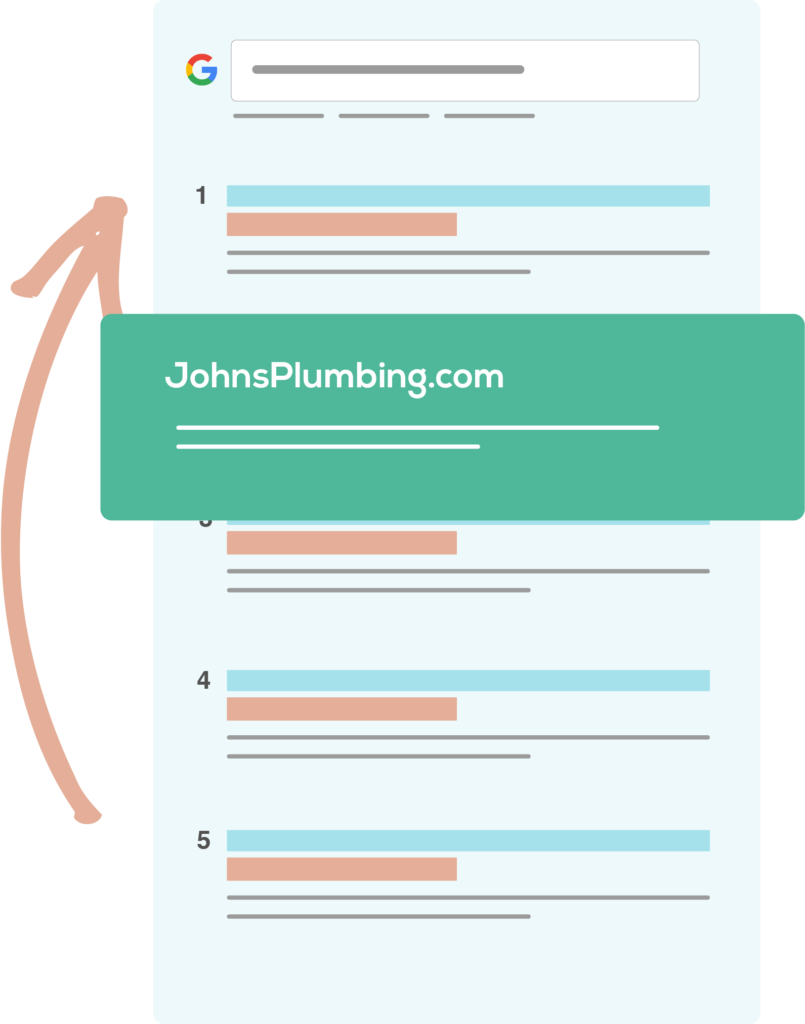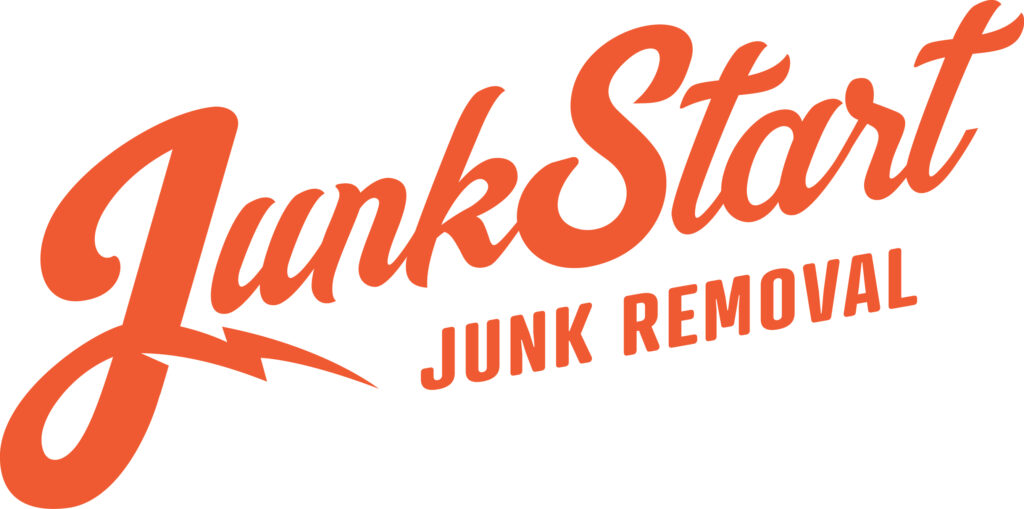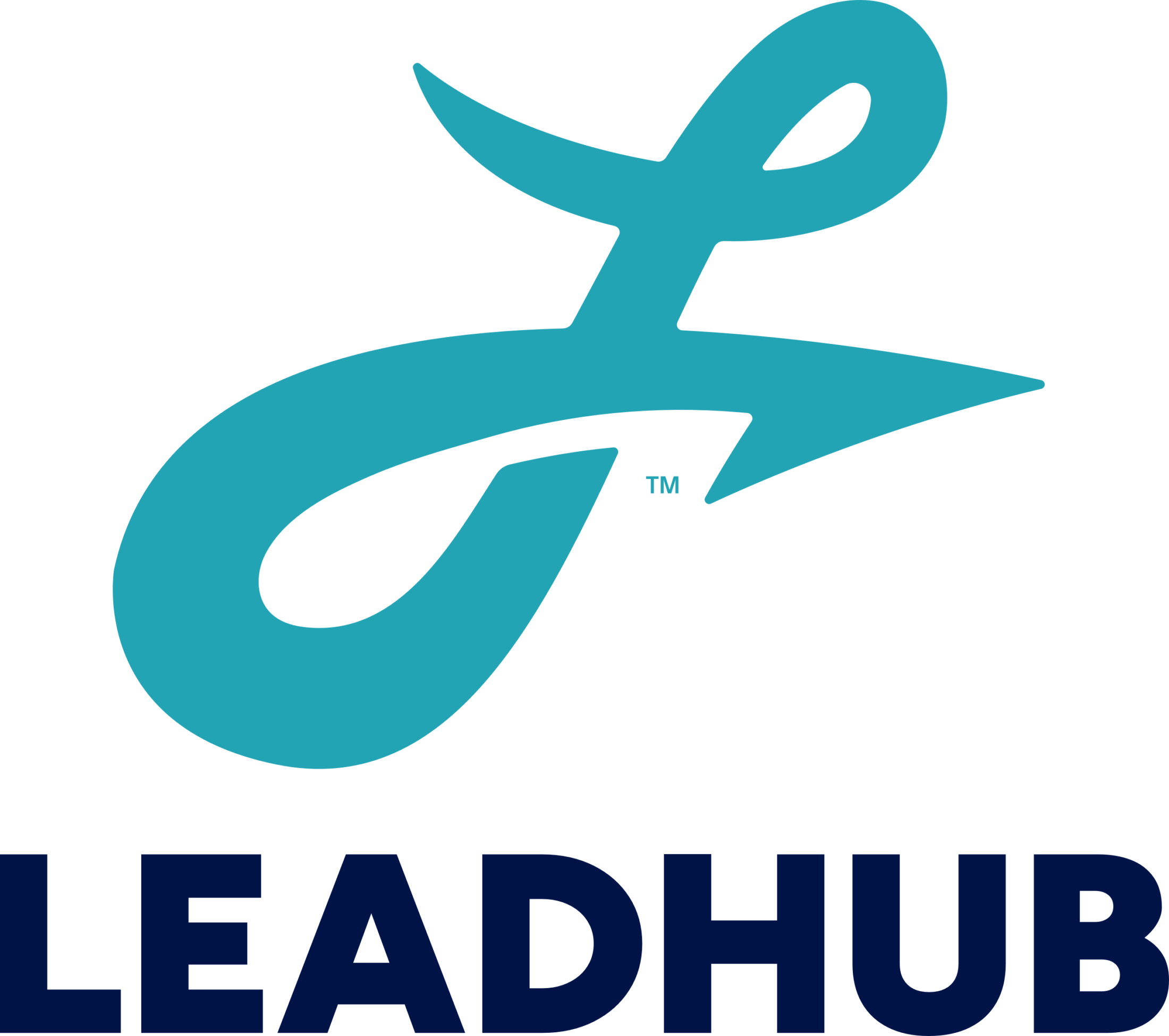Home Services Marketing Agency
What Is Search Engine Optimization?
Search engines — like Google and Bing — use bots to crawl websites and collect information about the content displayed there. They use the data from your website to decide how connected your content is to what people are searching for. In other words, your website is like one book in a massive library. If your website is organized and optimized for search, the librarians (bots) will have a much easier time finding your book (website) when someone searches for the services you offer. That’s when your website ranks higher on the search engine!
Our SEO Strategy
Leadhub invests time in learning how people search for your services so that your website is relevant and valuable to both the search engine algorithms and the customers looking for you. Every piece of content that we create and maintain for your brand — from blogs to service pages to social media posts — is fine-tuned to rank higher and reach your audience. Using industry-specific keywords, strategic content organization and technical SEO knowledge, our team creates a cohesive game plan for your visibility.

How Local SEO Benefits Home Service Companies
Local SEO plays a crucial role in making home service companies more visible to potential customers residing within their service areas. When someone searches for services like plumbing, HVAC, water filtration or foundation repair, they typically look for local options. By optimizing your website for local search, you ensure that your company appears prominently in these local search results.
Key Benefits Of Local SEO For Home Service Companies
- Increases visibility — Local SEO enhances your online visibility, pushing your company to the forefront in search engine results. This is essential when customers in your community are searching for the services you offer.
- Builds trust and credibility — Websites that rank higher in search results often seem more trustworthy to potential clients. Appearing at the top of local search results can establish your company as a leader in your field.
- Encourages customer engagement — By targeting customers in your immediate area, you can drive more foot traffic and service calls. This targeted approach ensures that you connect with people who are likely to require your services.
- Enhances competition — Local SEO gives small or medium home service businesses the opportunity to compete against larger, often more recognized companies. With effective local SEO strategies, it’s possible to rank even above national chains in local searches.
In essence, local SEO not only boosts the number of visitors to your website but also increases the likelihood that these visitors become paying customers. For home service companies, excelling in local search results can be the deciding factor between a customer choosing your business over a competitor’s.
How Long Does SEO Take To Generate Results?
Understanding how long it takes for SEO to produce results can be pivotal for your online strategy. Generally, you might start seeing some progress within three to six months. However, for industries targeting highly competitive keywords, it could take anywhere from six months to a year to see significant changes.
By maintaining a consistent SEO strategy, you’re likely to see more durable and meaningful improvements in your search rankings over time. Learn more about the factors that affect the speed of your SEO impact!
What Are The Pillars Of Successful SEO Services?
If you’re looking to boost your home service business’s visibility online, understanding the foundational elements of SEO is crucial. There are three key pillars that form the backbone of an effective SEO strategy.
Technical Structure & Code Optimization
Your website’s foundation is critical for search engines to efficiently discover and index your content. To achieve this, ensure that your site is structured and coded in a way that makes it accessible. Characteristics of a technically sound site include rapid load times, robust security measures and mobile optimization to cater to users on various devices.
Content Quality & On-page Elements
Content is the heart of SEO. Your site should be filled with unique, engaging and well-optimized content tailored to your target audience. This means crafting detailed and informative pages that address the needs and queries of potential clients, using strategic keywords, manageable headers and descriptive metadata.
External Signals & Online Reputation
Building credibility for your site involves earning quality backlinks from reputable sources. Having other authoritative websites link to yours not only enhances your SEO but also boosts your site’s trustworthiness. Additionally, garnering positive reviews, particularly on platforms like Google My Business, plays an essential role in establishing a strong online reputation.
How Does Leadhub Track SEO Success?
Tracking SEO success is crucial, yet often neglected. Unlike many online marketing companies that overlook this step, Leadhub prioritizes it from the beginning. Here’s how we ensure accurate and effective tracking.
- Comprehensive data collection — We start by collecting a wide range of data, including website traffic, page views and user behavior. Tools like Google Analytics and SEMrush play a key role in gathering this information.
- Goal setting and KPI identification — Clearly defined objectives and key performance indicators (KPIs) are established at the outset. These metrics might include organic traffic growth, conversion rates and keyword rankings.
- Regular monitoring and analysis — Ongoing monitoring is vital. Using tools like SEMrush and Google Search Console, we continuously analyze SEO performance, making adjustments based on real-time data.
- Customized reporting — Detailed reports are generated and tailored to meet the specific needs of each client. These reports provide insights into what’s working and what needs improvement, ensuring transparency and actionable feedback.
- ROI-focused evaluation — Beyond just numbers, we assess the return on investment (ROI) from SEO efforts. This means examining how SEO contributes to broader business goals such as lead generation and revenue growth.
By integrating these steps into our process, Leadhub ensures a robust approach to tracking and enhancing SEO effectiveness, setting us apart as leaders in the field.


